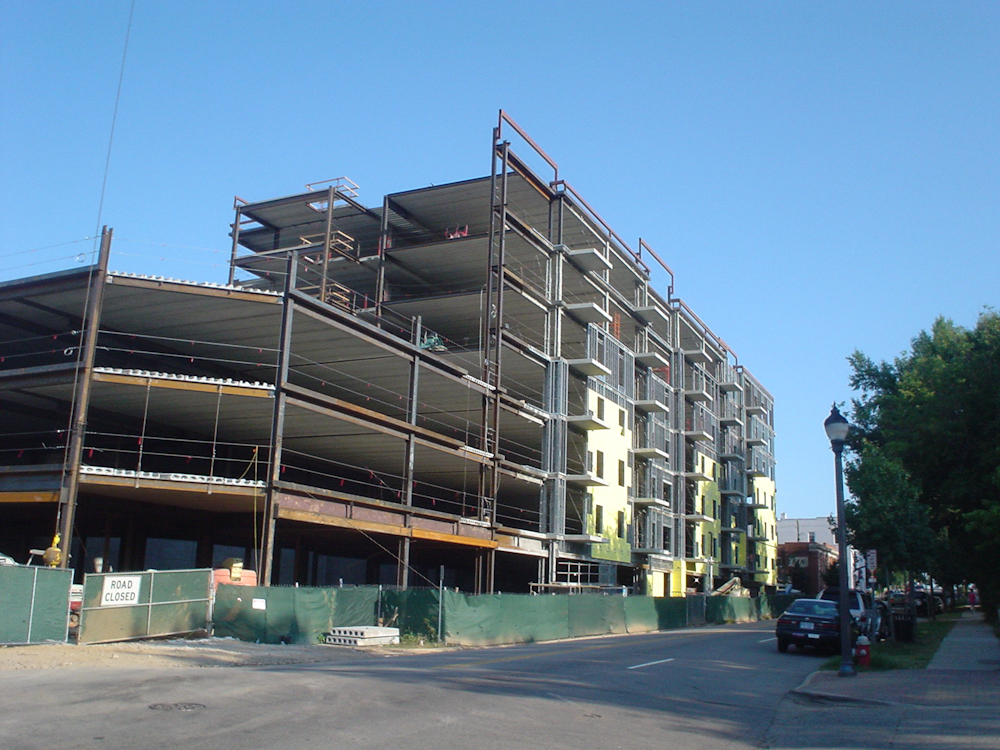Growing Downtown Raleigh North
Peace Street is within the boundaries of Downtown Raleigh and this vision wants it to be a destination or gateway to the city center. The constraints brought on by the condition of Capital Boulevard over the last few decades have left Peace Street with many undeveloped parcels of land. Link Peace Street encourages planners to consider an alternative that will maximize the areaís potential for development in a way that will benefit the immediate area as well as the entire city.
Investments in downtown Raleigh generate tax revenues that benefit the entire city. Emily Badger at The Atlantic Cities has written an article about how developers in Asheville are trying to show the amount of revenue made off of investments in downtown. She writes about how downtown buildings generate significantly more revenue than a store like Wal-Mart. She mentions Raleigh in her article as well:
This concept is true everywhere. In Raleigh, for instance, it would take 600 single-family homes on a 150-acre subdivision to equal the tax base of the 30-story Wells Fargo Capitol Center downtown. And it sits on 1.2 acres of land.
All of this is also just looking at the revenue side of the ledger. Low-density development isnít just a poor way to make property-tax revenue. Itís extremely expensive to maintain. In fact, itís only feasible if weíre expanding development at the periphery into eternity, forever bringing in revenue from new construction that can help pay for the existing subdivisions weíve already built.
The Simple Math That Can Save Cities From Bankruptcy via The Atlantic Cities
Link Peace Street is a vision from residents that includes this the type of worthwhile investments to produce quality developments that continue to generate tax revenue so that the entire city benefits. The core business district is the appropriate place for this type of development.
